January in the Rose Garden with Denise Abruzzese, Consulting Rosarian
A clean garden is a healthy garden! Time to look at your garden’s health. What can we do? Here are some helpful tips:
1. Remove all dead, dying and diseased canes but don’t heavy prune yet as we do not want to stimulate new growth in case of a freeze.
2. Remove all weeds.
3. Clean up the ground around your roses including fallen leaves, branches, etc.
4. Mulch your gardens well to keep weeds at bay. You can lay cardboard on the ground before mulching. It will break down into organic matter.
5. Don’t forget to water. We are in dry season but even dormant or semi-dormant roses still need water. If we are scheduled to get cold weather, which may include a frost, water well the day before to keep the rose roots from freezing.
6. If the temperatures are cool, you can spray neem oil to kill off any aphids or other insects and keep the blackspot at bay.
7. Pick any rosehips you find and prepare them to go into the refrigerator so you can create some new roses!
In January, your roses may continue to bloom here in Zone 11A. Just enjoy them!
More January – February Growing Roses Tips
If you grew roses in the northern climates, you would have already cut your last bloom weeks ago. Here in South Florida, in December and January, you should be planning to cut some of the best-looking blooms you may have not seen since last April. The mild weather we are now experiencing is great for roses, and you should also see fewer bugs. Here are some actions to take now to keep those beautiful blooms coming until it is time to prune in early February.
- Water – While you do not need to water as often as you did in the summer,
you still need to monitor the rainfall and check your irrigation system to make
sure it is working properly. If you grow roses in pots, remember that while they have to be
watered daily in the summer months, in late fall and winter only water every other day. It is easy to use a timer. Then if it rains, put it on a delay setting. Remember though to always water prior to fertilizing. - Fertilizing – If it has been more than a month since you last fertilized, you should do it now. You want to give your roses a quick boost to get a nice flush of blooms before you prune in early February. It might be best to use a liquid or a granular fertilizer. Organics are highly recommended, but they take longer to break down, especially when you’re experiencing cooler weather. A liquid organic might be a good choice, if you can find it. “Mills Easy Feed” is an example of this (www.millsmix.com).
- Insects – Spider mites remain active. They thrive in dry conditions, but you can control them with a hard spray of water to the undersides of the leaves. If you have leaves that are a light green, or grayish, shake the leaf over a white sheet of paper. Using a magnifying glass, you will see the tiny spider mites. If you have an infestation, do the water spray every other day for three treatments. Wrinkled leaves with brown marks, can mean you might have Chili thrips. As the weather cools down, the thrip activity will decrease. If you need to treat them, the best choice is Conserve, or for smaller gardens, Conserve Naturalyte. This insecticide is effective on Chili thrips and is less harmful to beneficial insects than other products, but you should apply it early or late in the day, when bees are not active.
- Cutting your blooms – If you give some care to your rose bushes now, you will have some beautiful blooms to cut in about 5 – 6 weeks. Unlike in summer, when you want to retain the foliage to help keep the bushes cool, it is okay to cut long stems now. When you cut, do so just above a 5-leaf cluster, no more than 1/4″ above the bud eye that is at the base of the leaf cluster. If you more than 1/4″ of stem is left you often will get dieback that can continue down the stem.
March- April
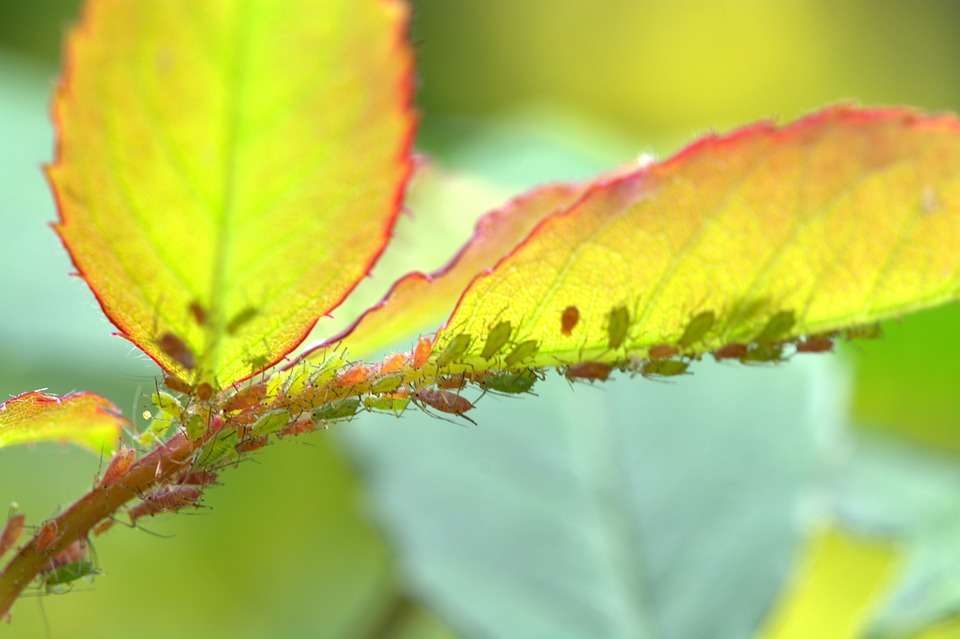
You will have blooms 5 to 7 weeks after you prune. Generally, the more petals a rose has, the longer it takes to mature. You will need to apply more fertilizer, because once you start cutting blooms the bushes will immediately start to re-sprout and give you a second flush of bloom. Continue spraying the roses with a fungicide.
Check for bugs. You may begin to see aphids. These are little green insects that suck on new buds and new growth. They can be squished with your fingers if there are just a few. Use an insecticidal soap if they are found in large numbers.
In April, you may see scarab beetles in the blooms. They can be knocked off into a jar of water with a little Clorox added. (Or they can be squished between petals or rose leaves). April is often dry and sometimes you will get a infestation of spider mites later in the month. They live on the underside of the leaves and are very small. If you have them, the leaf will start to lose color and feel gritty or sandy on the underside. A hard blast of water to the underside of the leaves will control them. This should be repeated several days in a row, or every other day for about 3 days, then once a week until the rains start.
May – June
As the weather starts to w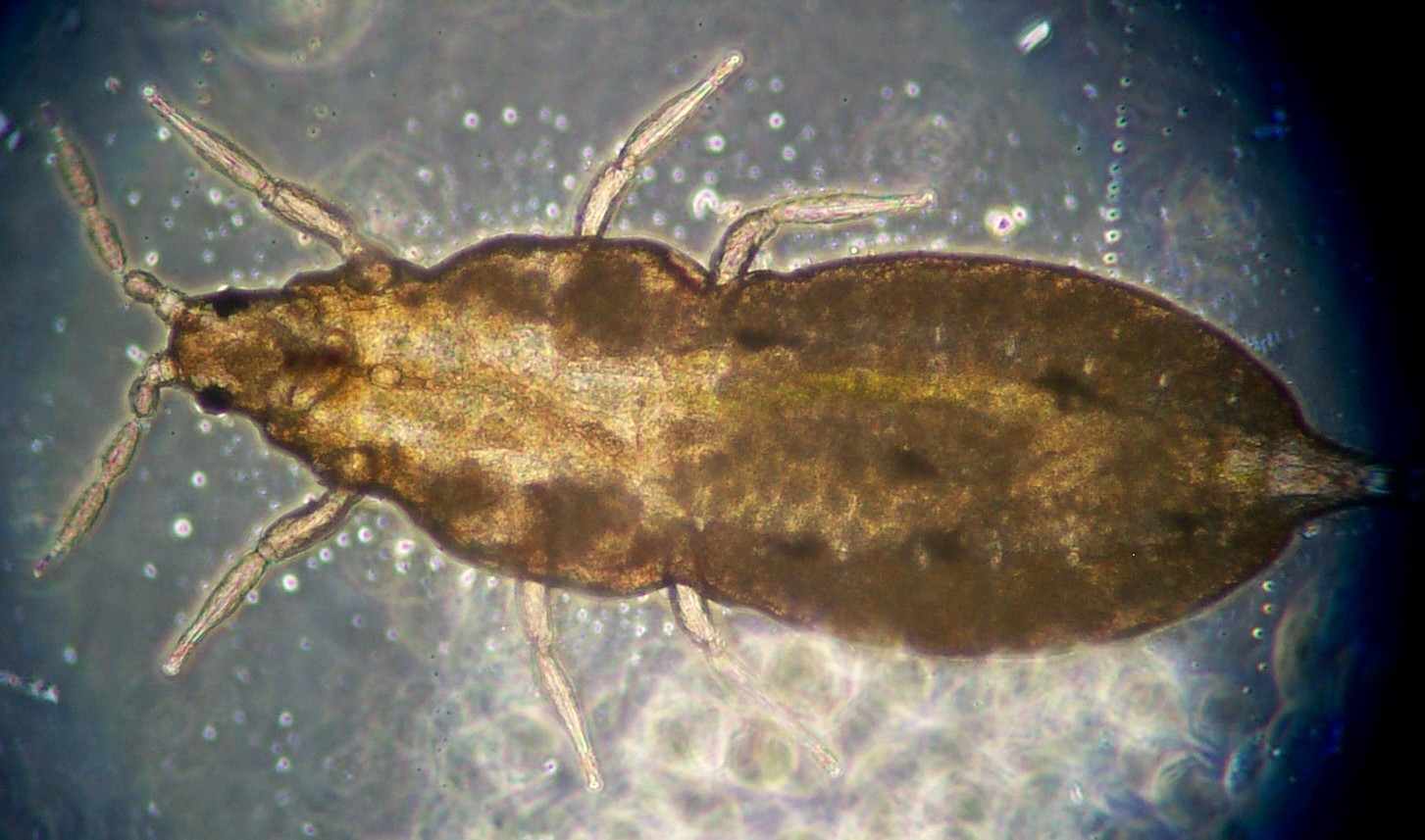 arm you will need to be sure the roses are getting plenty of water. Also, this time of year, the Chili Thrips may show up. They are tiny insects that attack stems, leaves and blooms. You will first see their damage on new growth. The new little leaves will look crinkled and have brown spots. Some people have had luck controlling them with the newer types of horticultural oil like Suffoil-X. It must be sprayed early in the morning or late in the day, as it will burn the leaves in hot sunny weather. If you are experiencing a bad infestation you will probably have to use an insecticide such as Conserve. It may be marketed under different names. The active ingredient you should look for is Spinosad. It is somewhat less detrimental to beneficial insects than other insecticides. Keep up with your fungicide spray program. Pull off blackspot-infected leaves whether your spray or not (this should be done year-round).
arm you will need to be sure the roses are getting plenty of water. Also, this time of year, the Chili Thrips may show up. They are tiny insects that attack stems, leaves and blooms. You will first see their damage on new growth. The new little leaves will look crinkled and have brown spots. Some people have had luck controlling them with the newer types of horticultural oil like Suffoil-X. It must be sprayed early in the morning or late in the day, as it will burn the leaves in hot sunny weather. If you are experiencing a bad infestation you will probably have to use an insecticide such as Conserve. It may be marketed under different names. The active ingredient you should look for is Spinosad. It is somewhat less detrimental to beneficial insects than other insecticides. Keep up with your fungicide spray program. Pull off blackspot-infected leaves whether your spray or not (this should be done year-round).
For a great, in-depth look at south Florida rose care in June and July, download Wayne Myers’ great article: June & July In the Rose Garden-2025. Wayne is a Master Rosarian from Gainesville Rose Society.
July – August
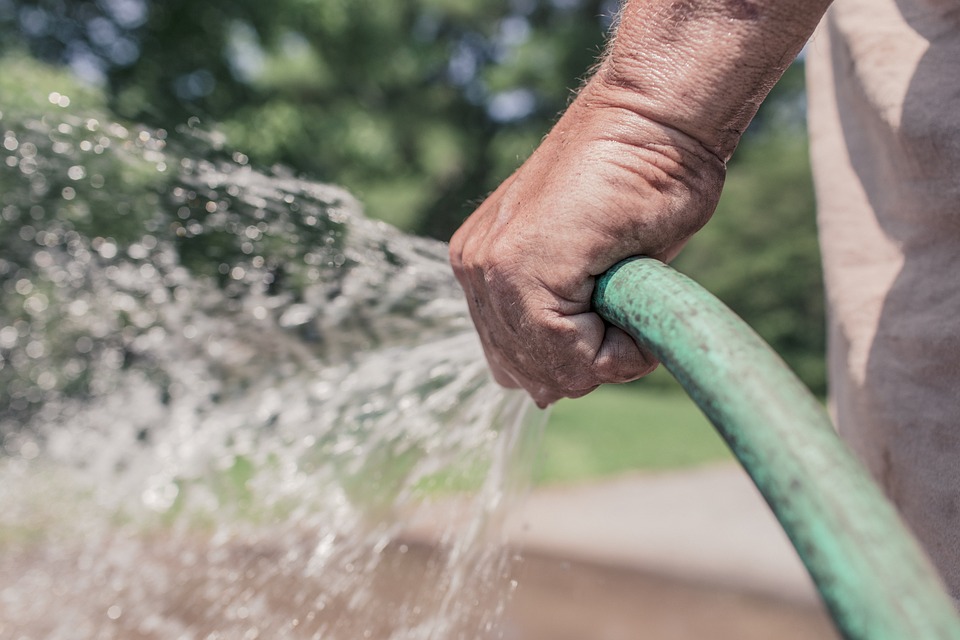
During these hot months you need to water regularly if we are not getting rain. Roses in pots will need to be watered daily. Your goal should be to leave as much foliage on the bushes as possible. Cut very short stems when you remove blooms. Expect to see your blooms half the size they were a couple months ago.
Fertilizing with a low nitrogen product is recommended by some, so that you do not encourage a lot of new tender growth that will attract bugs. Many rosarians have good luck fertilizing with Milorganite and K-mag in the summer and early fall. Keep spraying (and removing only diseased leaves). Keep an eye out for Chili Thrips and spider mites. Tip: ‘Veteran’s Honor’ puts out pretty nice blooms even in hot weather.
For a great, in-depth look at south Florida rose care in June and July, download Wayne Myers’ great article: June & July In the Rose Garden-2025. Wayne is a Master Rosarian from Gainesville Rose Society.
September – October
Your rose bushes may not be looking too good this time of year 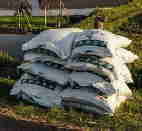 and you may be tempted to prune, but it is best to hold off until milder weather arrives in October. Once the extreme summer heat is passed it is okay to do some pruning, although it is best to wait until winter to do hard pruning. (Hard pruning usually means removing up to half the height of the bush and all the foliage). Be sure to fertilize now and you will have some nice blooms in the coming months. Keep up the spray program!
and you may be tempted to prune, but it is best to hold off until milder weather arrives in October. Once the extreme summer heat is passed it is okay to do some pruning, although it is best to wait until winter to do hard pruning. (Hard pruning usually means removing up to half the height of the bush and all the foliage). Be sure to fertilize now and you will have some nice blooms in the coming months. Keep up the spray program!
November – December
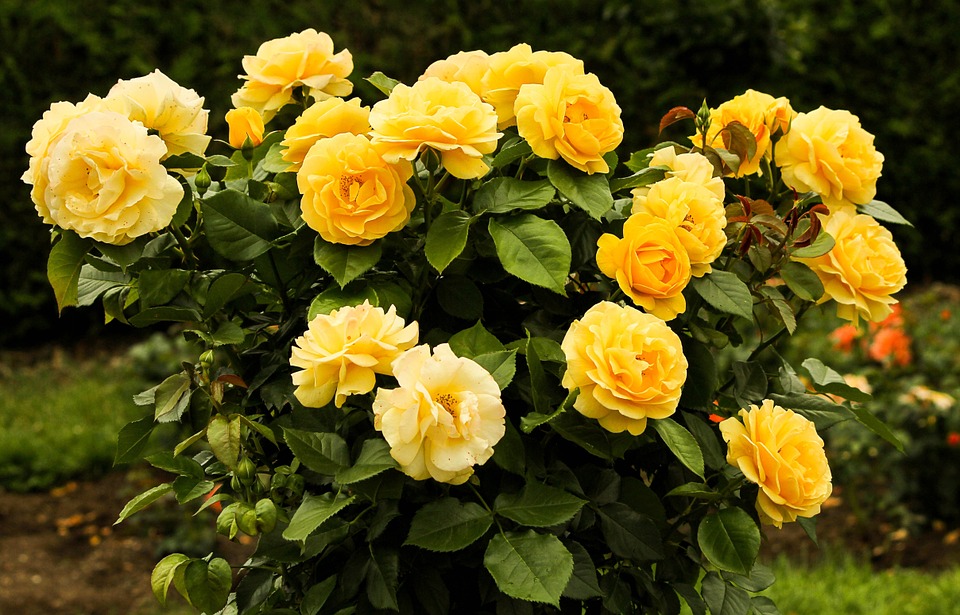
Your blooms should start looking nicer now. You can start cutting long stems again, but wait to heavy prune. It’s okay to remove any dead, diseased or dying canes in November so you have a beautiful healthy flush for Christmas arrangements. And yes, keep up with the spraying of fungicides unless you have disease-resistant roses.
Fertilize in November, so that you will have nice blooms through Christmas and into the new year. Roses also benefit greatly from organic matter or compost at this time of year. Do this in November, as you’ll want to slow down fertilization during December and January giving our roses a winter rest before heavy pruning in the spring. Horse manure from a local horse farm is perfect for this situation. There are some that will give it to you for free. Make sure the horses are fed organic, natural feed. Also make sure the farm doesn’t apply glyphosate-based herbicides (like Round Up® Weed & Grass Killer) on their property or grasses. Great Big Roses Compost Extract is an organic liquid compost you can purchase online and roses love it.
Adding a little layer of natural mulch will also add organic matter to your rosebeds as it decomposes over time. You may wish to stay away from dyed, non-organic or synthetic mulches. They may look pretty (rock, rubber chips, dyed shredded wood), but they do not add quality nutrients to your soil.
Try adding a 1/2 to 3/4 cup of organic cornmeal at the base of each established rose bush and water it in to control black spot.
